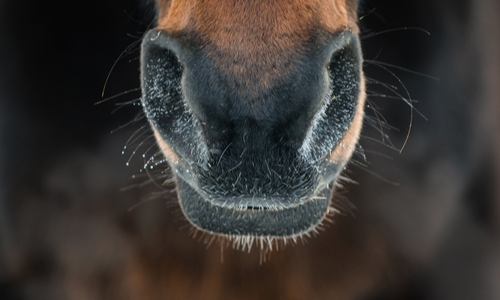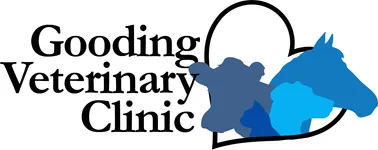
Helping Your Horse Breathe Easier: Managing Equine Asthma
Equine asthma affects your horse's lung function and can even cause death in severe cases. Fortunately, you may be able to reduce the number and severity of equine asthma attacks by making a few changes in your horse's environment.
How Equine Asthma Affects Your Horse
Equine asthma is an umbrella term that encompasses recurrent airway obstruction (heaves) and inflammatory airway disease. Asthma triggers spasms, swelling, and inflammation in your horse's lungs and narrows the small airways. Increased mucus production caused by inflammation also makes it difficult to breathe easily during an asthma flare-up.
Some horses experience only mild asthma symptoms while others struggle with severe symptoms that compromise their ability to breathe.
Signs of equine asthma may include:
- Coughing, Especially When Active or Eating
- Wheezing
- Nasal Discharge
- Difficulty Breathing, Even at Rest in Some Cases
- Flared Nostrils
- Decrease in Energy Level and Stamina
Reducing Exposure to Airborne Irritants and Allergens Is Essential
Exposure to mold, fungi, dust, endotoxins, or ammonia can be asthma triggers. Although horses with allergies are more likely to develop asthma, allergies alone aren't the only cause of equine asthma. In fact, any horse can experience asthma symptoms after exposure to dust and other airborne irritants.
Decrease irritants and allergens by:
- Finding a New Place to Store Straw and Hay. Keep stray and hay far from stalls to reduce asthma symptoms. Make sure storage areas are dry to reduce mold.
- Trying New Bedding. Shavings, cardboard, shredded paper, or peat are better options than straw, according to an October 2020 article in The Horse.
- Making Cleaning a Priority. Remove old bedding daily and clean stalls thoroughly to reduce exposure to dust, mold, and ammonia. Wait an hour or two before bringing horses back into the barn, as cleaning may stir up airborne particles.
- Pasturing Your Horse. Keeping your horse outdoors as much as possible may help reduce asthma flare-ups.
- Improving Ventilation. Good airflow can prevent the build-up of airborne irritants. Make sure your horse has access to a window or another source of outside air when stabled.
- Considering a Change in Diet. If eating dry hay seems to worsen asthma symptoms, it may be time to make a few changes. Switch to high-quality alfalfa hay, offer pellets instead, or follow the advice of the American Association of Equine Practitioners and try alternative forages like soaked hay cubed or soaked beet pulp flakes. Finding a type of feed that doesn't irritate your horse's lungs will probably take a little trial and error. If one type doesn't help or worsens symptoms, try another.
Talk to Your Equine Veterinarian About Treatment Options
If changes to your horse's environment aren't enough to control asthma symptoms, your veterinarian can discuss treatments that may be helpful including:
- Bronchodilators. If you have asthma, you're probably familiar with inhaled bronchodilators. The medications relax the muscles in the lungs and open up the airways, improving breathing, and stopping spasms. The medication is delivered through a small mask-spacer device over your horse's nostrils.
- Corticosteroids. These medications reduce inflammation and swelling in the airways and decrease mucus production. Corticosteroids and bronchodilators are often used together.
- Omega-3 Polyunsaturated Fatty Acid (PUFA) Supplements. Giving your horse PUFA supplements may offer a simple way to manage asthma symptoms. Coughing improved by 60 percent and respiratory effort decreased by 48 percent in horses participating in a study published in the Journal of Veterinary Internal Medicine in 2015. Horses were fed a hay-free pellet diet and received PUFA supplements every day for two months.
- Intravenous Magnesium Sulfate. In another study funded by the Morris Animal Foundation, horses were given intravenous magnesium sulfate during asthma attacks. The medication relaxed the airways and improved breathing without causing any long-term negative effects.
Does your horse suffer from asthma? We can help you manage the symptoms and reduce flare-ups. Give our office a call to schedule a convenient appointment.
Sources:
Veterinary Practice News: What You Need to Know About Equine Asthma Syndrome, 2/27/17
The Horse: Breathing Easy: Managing Horses With Asthma, 10/17/20
